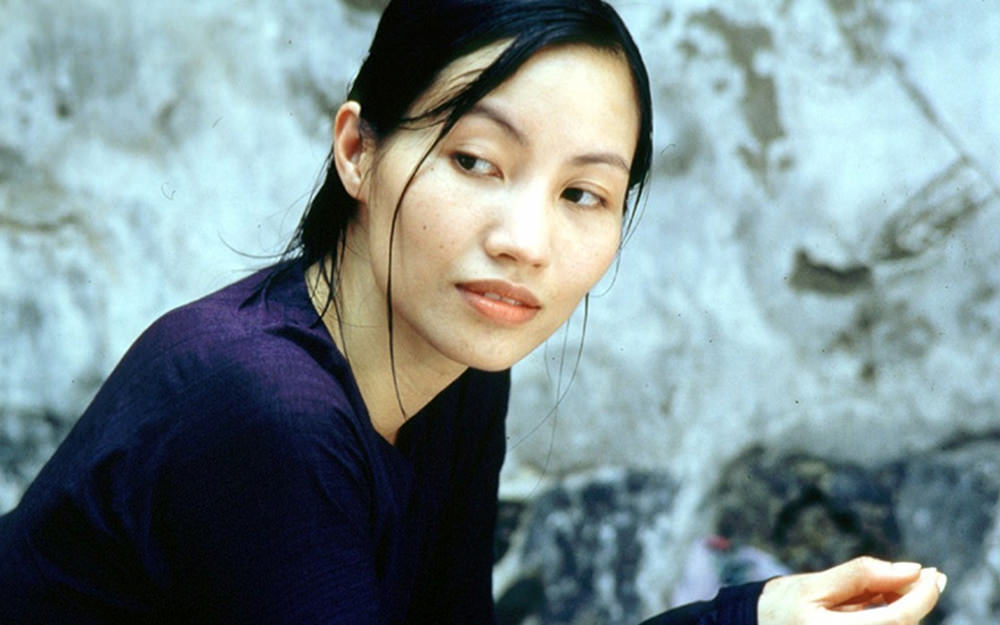The Vertical Ray of the Sun by Tran Anh Hung (Review)

In The Scent of Green Papaya, director Tran Anh Hung crafted a beautifully moving story with only a minimum of dialog, concerned more with using mood and atmosphere the carry the story than anything else. The Vertical Ray of the Sun has more dialog, but the intent is still the same, effectively drawing you into the movie so much that, at times, you don’t want to hear anything at all. All you want to do is sit and ingest each and every lush image.
Focusing on the lives of 3 sisters and their close-knit family, the movie chronicles the 30 day span between the memorial of their mother’s funeral and the memorial of their father’s. But the movie certainly takes its time revealing details. For the first half hour or so, plot details are scant. What’s obviously more important is the setting, the feel of the scenes.
Hung’s camera lovingly captures the surroundings in bright, colorful details. Everything has its vibrancy turned up a notch or two, from the bright green flora to the deep blues of the rainy nights to the shiny black depths of the sisters’ hair as they wash it, The Vertical Ray of the Sun is alive with color. One of my friends walked in halfway through the film, and immediately commented on how serene it was, and I think that’s the best way to describe it. It is serene, but great passions boil just beneath the surface.
Slowly, details begin to emerge about the family, the sisters and their various relationships. As always, the dialog remains minimal, relying on the viewer to tie things together. As one does, it becomes apparent that some of the emerging details could threaten the serenity of the sisters’ lives. Infidelities, past and present, come forward to haunt various members of the family, echoing an affair their mother might have had so many years ago.
But there’s also the promise of forgiveness, that a family sticks together no matter what. Even in the midst of betrayal, new life can also emerge. Again, the director keeps details to the bare essentials, often letting silence say more than any dialog ever could. And there are those beautiful visuals, always the beautiful visuals.
Indeed, it’s so easy to get swept up in the sights of this movie, the way the camera turns the rituals of everyday life, even something as unglamorous as waking up or washing one’s hair, into a sensual dance. It’s so easy to get caught up that the ending comes as a complete shock, rudely jarring you out of the movie’s pace and back into the real world. I have to admit some disappointment at the ending, the way it leaves so many things unsaid or undone. But at the same time, the things that it does leave behind remain vivid in my memory.
